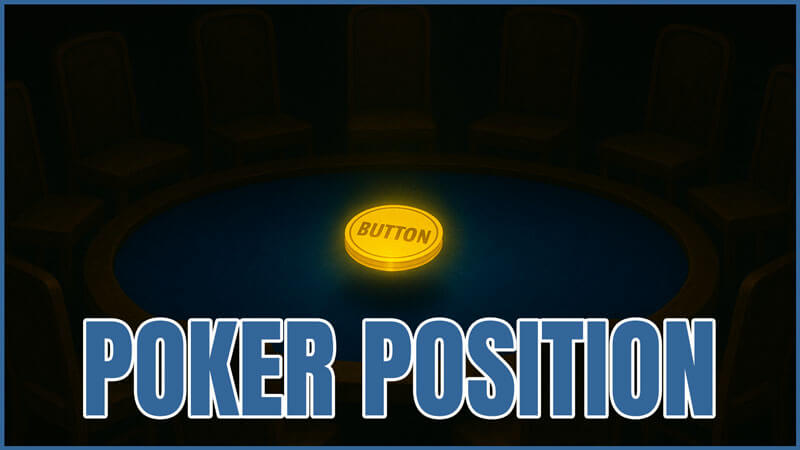Poker Position: Why The Best Way to Play Is In Position
A good poker player knows that position is a crucial factor in the game and plays a vital part in the success of a player.
The term “playing in position” means that a player who is in this situation is the last one to make their move after they have seen what everybody else has done.
But why is it so important to play in Position?
Why is it Best to Play in Position?
If you’re playing in position, you have the maximum amount of information available to any player. You have the edge because you get an idea of what is happening with your fellow players before it is your turn to play, and you have to decide what you are going to do with your hand.
Someone who is not playing in position is groping in the dark, trying to guess the value of his opponents’ hands without getting any information from them first.
This article is not designed to teach you the various different positions in poker, if you want a refresher then take a look at the Poker Position lesson in the How to Win at Poker Course in the University.
Advantage: Playing In Position
Playing in Position is the phrase used when you are playing in Late Position. This means that you are on the dealer button, or the few seats to the right of it.
Because the play always starts from the seat to the left of the dealer button, this means that it goes around the whole table before it reaches you, and all your opponents have had to reveal some information about their hand before you have to make any decisions.
Poker decisions can feel more straightforward when you’re playing in position, thanks to the extra information you have before acting. When you’re joining a table, spend some time observing the table and try your best to get the seat to the left of the weak players at the table. This way, you’ll get the most possible time being in position and can wield that positional power against the weaker players who don’t have the know how to recognize what you are doing or defend against it.
Because of the strategic advantage of acting last, this position is sometimes playfully nicknamed the “power seat” by experienced players. When used effectively, it can give you greater insight into your opponents’ actions and help you make more informed decisions.
Your opponents often have to take a more cautious approach when they’re out of position, which can limit their options and make it easier for you to take control of the hand.
Disadvantage: Playing Out of Position
Anybody playing in Middle Position or Early Position (the blinds and first few seats to their left) is said to be playing “Out of Position”.
The player seated first to act pre-flop is often referred to as being “under the gun”—a term that reflects the pressure of making decisions without knowing what others will do. It’s a position where mistakes can be costly, so it’s best approached with caution and tight hand selection.
Under the gun, you are the first to act before the flop and among the first to act after the flop, so you lose the opportunity to gather information from your opponents actions before you have to act – this opportunity is in the hands of the person who is playing in position. So you will usually find the players in position controlling and defining the way a hand is played.
If you are in an early position, you would be well advised to play very tight. Since you are not in position, you are at a disadvantage, so counteract that by reducing the time you spend playing out of position. This makes later decisions simpler to make.
There is a simple strategy to apply when considering playing out of position. Only play really good hands. You should have cards comprising aces, kings and pairs. Secondly, if you have pocket aces, pocket kings or pocket queens or ace king, raise at a tight table, and limp in at a loose table.
Some experienced players occasionally use small “feeler” bets from early position to gauge opponents’ reactions, but this can be risky and should only be used with care and a solid understanding of table dynamics.
But in general out of position make sure that your game is extremely tight and play your hands carefully to make the best of playing out of position.
Again this Bitesize Strategy article is not designed to go into depth on how to play in certain positions and this is given the time it deserves and covered in much more detail in the How to Win at Poker Course in the University.
Position: the road to a more healthy Bankroll
The message from this article is simple: playing in position gives you a strategic edge, so it’s wise to prioritise these situations when choosing which hands to play. Over time, this can help you make more informed decisions and avoid difficult spots.
I know which one I choose, and my poker bankroll thanks me for it!
